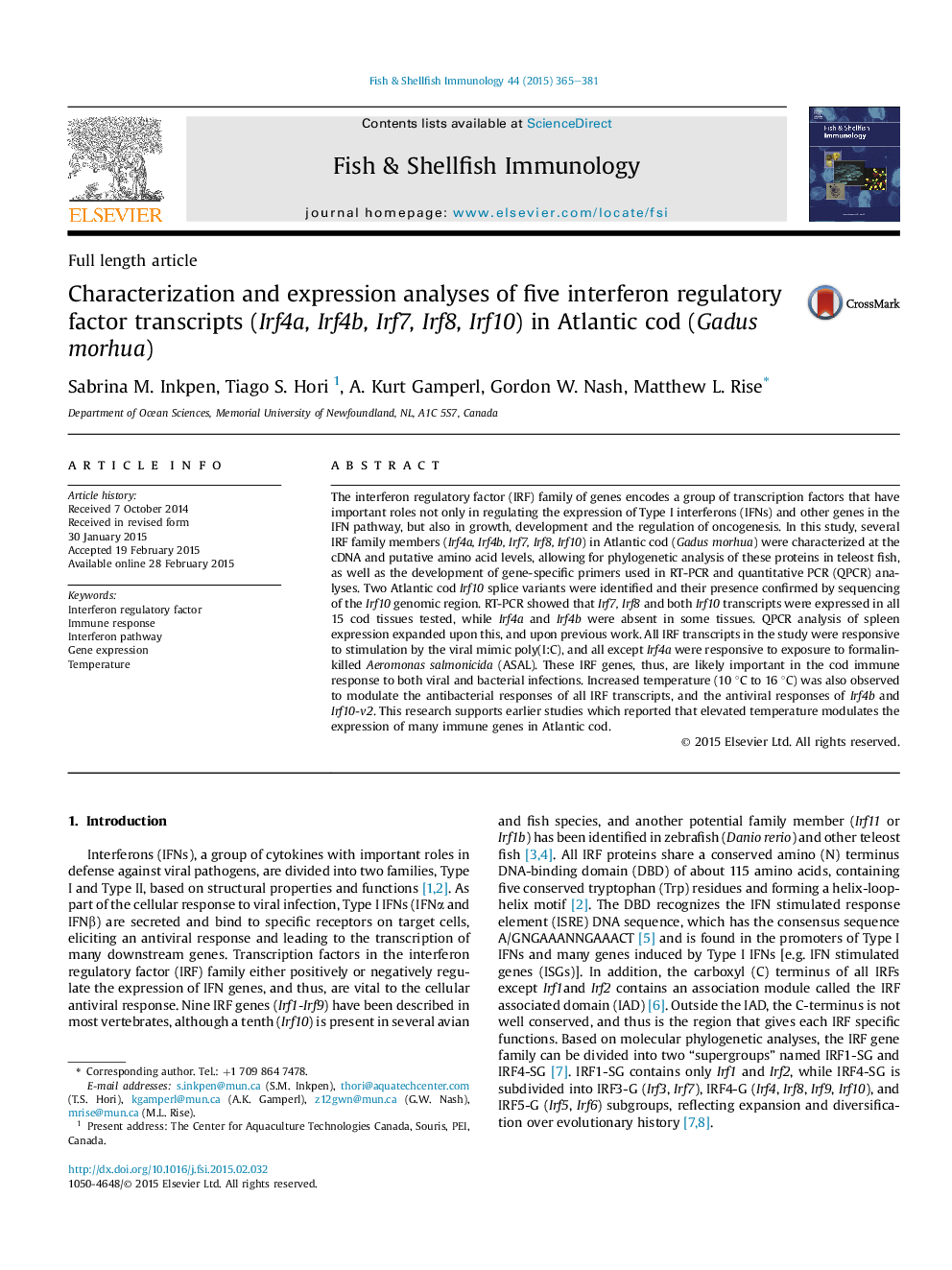| کد مقاله | کد نشریه | سال انتشار | مقاله انگلیسی | نسخه تمام متن |
|---|---|---|---|---|
| 2431290 | 1106750 | 2015 | 17 صفحه PDF | دانلود رایگان |

• Atlantic cod Irf4a, Irf4b, Irf7, Irf8, and two Irf10 splice variants characterized.
• Diverse constitutive expression profiles of cod Irf transcripts observed.
• Responses of transcripts to viral and/or bacterial antigens reported.
• Cod IRFs are likely to function in both anti-viral and anti-bacterial responses.
• Elevated temperature modulates the immune responsiveness of these Irf genes.
The interferon regulatory factor (IRF) family of genes encodes a group of transcription factors that have important roles not only in regulating the expression of Type I interferons (IFNs) and other genes in the IFN pathway, but also in growth, development and the regulation of oncogenesis. In this study, several IRF family members (Irf4a, Irf4b, Irf7, Irf8, Irf10) in Atlantic cod (Gadus morhua) were characterized at the cDNA and putative amino acid levels, allowing for phylogenetic analysis of these proteins in teleost fish, as well as the development of gene-specific primers used in RT-PCR and quantitative PCR (QPCR) analyses. Two Atlantic cod Irf10 splice variants were identified and their presence confirmed by sequencing of the Irf10 genomic region. RT-PCR showed that Irf7, Irf8 and both Irf10 transcripts were expressed in all 15 cod tissues tested, while Irf4a and Irf4b were absent in some tissues. QPCR analysis of spleen expression expanded upon this, and upon previous work. All IRF transcripts in the study were responsive to stimulation by the viral mimic poly(I:C), and all except Irf4a were responsive to exposure to formalin-killed Aeromonas salmonicida (ASAL). These IRF genes, thus, are likely important in the cod immune response to both viral and bacterial infections. Increased temperature (10 °C to 16 °C) was also observed to modulate the antibacterial responses of all IRF transcripts, and the antiviral responses of Irf4b and Irf10-v2. This research supports earlier studies which reported that elevated temperature modulates the expression of many immune genes in Atlantic cod.
Journal: Fish & Shellfish Immunology - Volume 44, Issue 1, May 2015, Pages 365–381